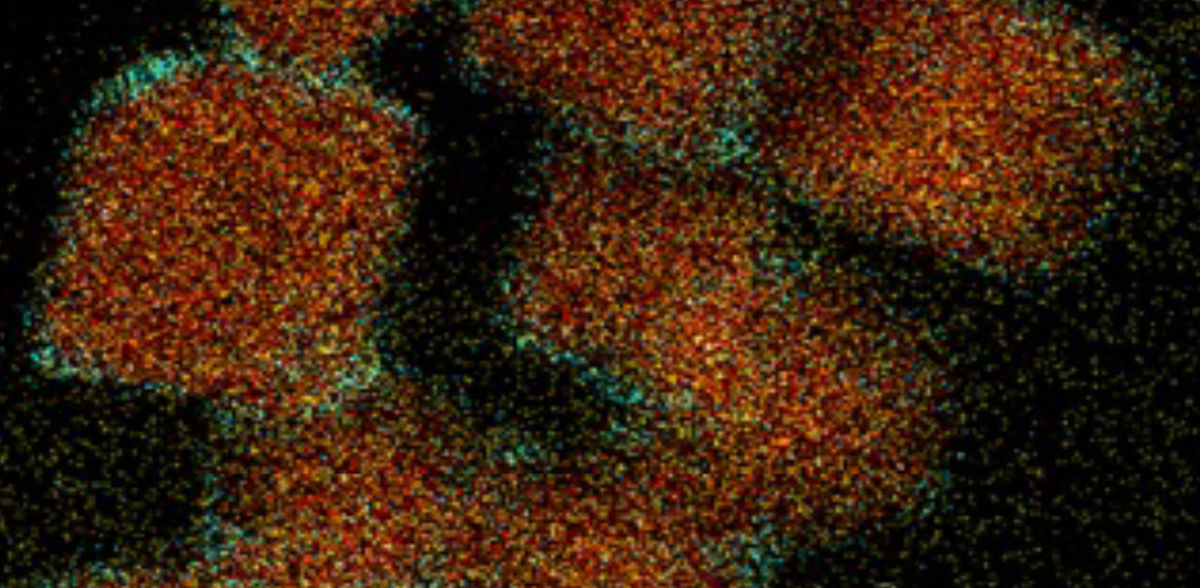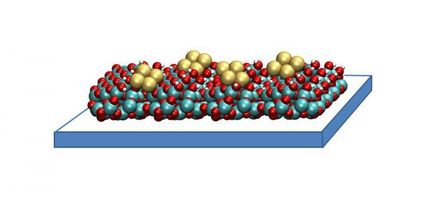Innovative Research Unveils News Path to Ethanol Production from CO2
Discovery represents a significant step forward in understanding in the quest for sustainable energy solutions
In a cutting-edge study published in the journal „Energy & Environmental Science“, researchers from the Interface Science Department at the Fritz Haber Institute have introduced a novel method for converting the greenhouse gas carbon dioxide (CO2) into ethanol, a sustainable fuel. This significant advancement could pave the way for more environmentally friendly and economically viable alternatives to fossil fuels.
The article, entitled „Time-Resolved Operando Insights into the Tunable Selectivity of Cu-Zn Nanocubes during Pulsed CO2 Electroreduction", reveals how the team successfully used a combination of copper and zinc oxide to favor the catalytic reduction of CO2 into ethanol. Traditionally, this process has relied solely on copper-based catalysts operated under stationary reaction conditions, which do not ensure the best selectivity to ethanol. Pulsed CO2RR is known to change this but while it is a promising approach, the catalyst can suffer from stability issues due to the more demanding reaction conditions, which are detrimental to its performance.
This new research highlights the benefits of using pulsed electrochemical CO2 reduction (CO2RR) techniques. Moreover, the team discovered that by adding a zinc oxide shell to the copper oxide nanocubes, it is possible to increase the production of ethanol while minimizing unwanted by-products such as hydrogen. Especially it was possible to achieve similar, if not superior, results in ethanol production with respect to pure Cu catalysts, but with significantly less demanding reaction conditions. In the past, the oxidation process of the catalyst involved in pulsed CO2 reduction was found to lead to the loss of Cu atoms via oxidative dissolution in the liquid medium (electrolyte), reducing its effectiveness over time. On the contrary, the present study unveiled that a more durable electrocatalyst can be created by design through the deposition of a zinc oxide-coating on the copper nanocubes. Using the new catalysts, it is then the zinc component that primarily oxidizes, sparing the copper and thereby maintaining the catalyst's integrity and efficiency. This innovative approach therefore enhances the lifetime of the catalysts themselves under the dynamic reaction conditions optimized for the generation of alcohol products. The detailed information on the structure and composition of the catalytic material required for its optimization was obtained via operando Raman spectroscopy, a method with excellent sensitivity for the detection of adsorbed reaction intermediates.
This discovery not only supports the hypothesis that the metal oxidation state plays a crucial role in the reaction and that the active reaction species are created during the catalytic process, but also demonstrates a potential way to enhance the selectivity and efficiency of CO2 reduction to ethanol. It represents a significant step forward in understanding in the quest for sustainable energy solutions, offering a promising route for a green and cost-effective production of ethanol and other fuels from CO2.
Original publication
Antonia Herzog, Martina Rüscher, Hyo Sang Jeon, Janis Timoshenko, Clara Rettenmaier, Uta Hejral, Earl M. Davis, F. T. Haase, David Kordus, Stefanie Kühl, Wiebke Frandsen, Arno Bergmann, Beatriz Roldan Cuenya; "Time-resolved operando insights into the tunable selectivity of Cu–Zn nanocubes during pulsed CO2 electroreduction"; Energy & Environmental Science, 2024
Original publication
Antonia Herzog, Martina Rüscher, Hyo Sang Jeon, Janis Timoshenko, Clara Rettenmaier, Uta Hejral, Earl M. Davis, F. T. Haase, David Kordus, Stefanie Kühl, Wiebke Frandsen, Arno Bergmann, Beatriz Roldan Cuenya; "Time-resolved operando insights into the tunable selectivity of Cu–Zn nanocubes during pulsed CO2 electroreduction"; Energy & Environmental Science, 2024
Organizations
Other news from the department science

Get the chemical industry in your inbox
By submitting this form you agree that LUMITOS AG will send you the newsletter(s) selected above by email. Your data will not be passed on to third parties. Your data will be stored and processed in accordance with our data protection regulations. LUMITOS may contact you by email for the purpose of advertising or market and opinion surveys. You can revoke your consent at any time without giving reasons to LUMITOS AG, Ernst-Augustin-Str. 2, 12489 Berlin, Germany or by e-mail at revoke@lumitos.com with effect for the future. In addition, each email contains a link to unsubscribe from the corresponding newsletter.




























































